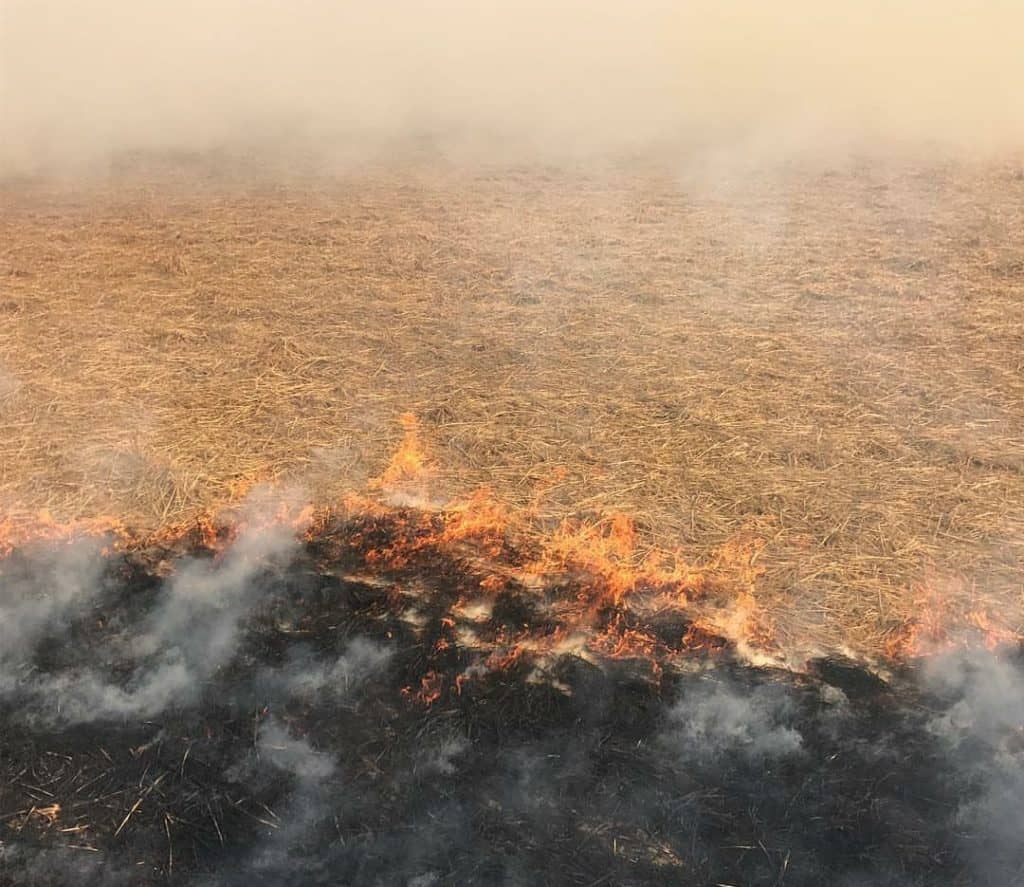Air quality deteriorates in north Indian states as farmers continue to burn paddy straws. Stubble burning higher this year as blame game continues.
Analysis of data for the last three years reveals that stubble burning has increased by 67% in Punjab. Punjab grew paddy on 27 lakh hectares including basmati on 7 lakh hectares this year. This is expected to produce around 16.5 million tonnes of paddy residue this year.
Farmers Blame Government
Farmers, on stubble burning, say that they are very well aware of the harmful effects of the pollution generated by straw burning. However, they have no other option. They complain that there are a few machines for removing stubble in the entire state. Also, they complain that buying and maintenance of machinery for removal of paddy from straws is unfeasible. Further, they accused the government of not fulfilling the promised amount of Rs 2500 per acre as compensation to hire labourers for clearing the fields.
Why Farmers Burn Paddy Stubble
The intensification of Paddy cultivation has raised the cases of stubble burning significantly since the green revolution. A study titled “Crop Residue Burning in Northern India: Increasing Threat to Greater India” led by NASA and published in July 2018 relates the introduction of mechanized harvesting (started in the 1980s) to the stubble burning. It explains that harvester leaves much taller ( 1-2 ft tall) stubbles than (6 inches) in manual harvesting. Moreover, farmers of Punjab claim that they have been burning stubble for decades. The stubble is hard, low in calorific value, and high in silica content and hence it cannot be used as fodder.
Government Promises Law to Check Stubble Burning
The Supreme Court suspended its decision to form a one-person committee to monitor the stubble burning. The decision has come after the Center promised to bring law to regulate stubble burning in NCR and areas around it. Secretary in the Ministry of Environment R.P. Gupta announced that new legislation is in the making to control the rice straw burning. However, an official from the Ministry confirmed that it had not consulted the Ministry of Agriculture on the issue until now.
Efforts of Punjab government
The government of Punjab has appointed around 8000 nodal officers to check the straw burning in the state. Further, CM Amarinder Singh, last week appealed to farmers not to burn the paddy straws. Also, he mentioned pressing the centre to provide ₹100 per quintal to farmers for managing the paddy straw without burning it.
In all, the Ministry of Earth Sciences revealed that stubble burning contributes only 16% to the Delhi pollution. This share was 36% a few days back and came down to 9% last Saturday. Other sources such as road dust, vehicular emissions, and industrial activities are the major causes of pollution in NCR. Besides, a drop in wind speed keeps pollutants trapped in the air, which deteriorates the quality of air.

